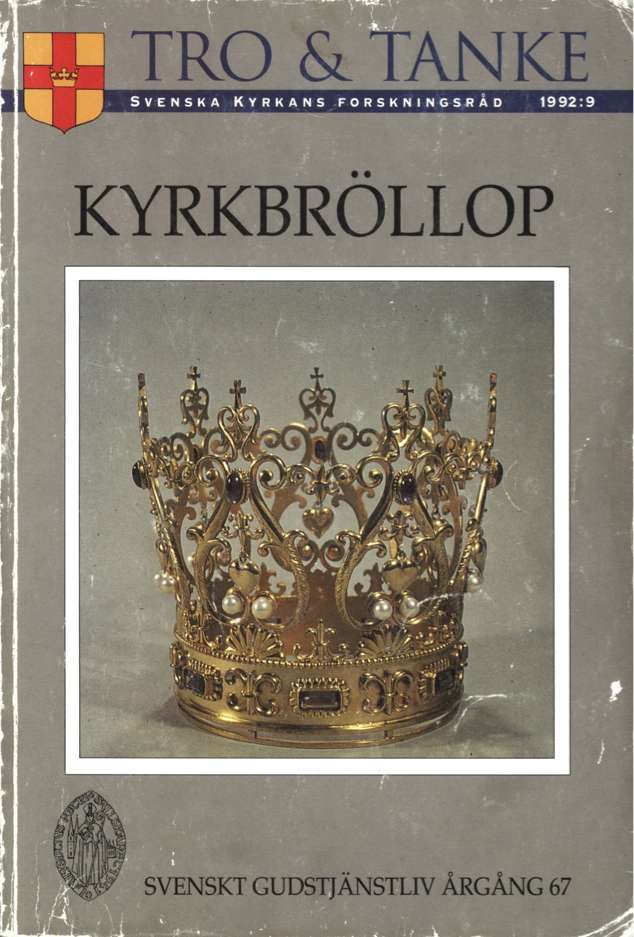UM, sa klockaren - några reflexioner över musiken vid vigselgudstjänst
Abstract
During the 50’s and 60s, it was often discussed which music could be played at church weddings. According to the order for weddings, a "dignified piece of music may be played when the bride and the groom enter the church". There were several difficulties: what is Church music, which music is dignified, who makes the decisions.
The demand that the music performed in church be dignified is as old as Church itself. The Church has always tried to separate the music played in the churches from that played outside. The church is a holy room consecrated to religious service and, therefore, special demands must be allowed for the music performed in church. We talk about Church music, but the definition thereof has differed from time to time.
A tone or a succession of tones cannot be churchly or secular. The main things are the purpose of the composer and the associations you get. Mendelssohn’s Wedding March, e.g., is a secular piece never intended to be played in church on the organ, but the question is if it has not actually become a piece of Church music because of the strong associations to church weddings through film and TV.
On the other hand, Charpentier’s Te Deum, which I have sometimes suggested as wedding music, arouses associations to the Eurovision programmes since it is their signature tune. Therefore, it is often turned down by the bridal couple.
It is vital that each parish has a music policy. The wedding is a service, and the church, then, is not being rented for some sort of private event. One must have the same demands on wedding music as on regular service music. It must have quality and, if there is a text to it, it must have some sort of religious message.
Participation is an important factor. The bridal couple may see the minister and the organist beforehand to discuss the wedding, a relative or a friend may sing or play something or read a piece of poetry just to make more people involved in the wedding. Of course, the bridal couple will want music that they have some kind of relationship to, but through the secularization they may have no idea of the music normally performed in the church. The organist has to advise them gently and with respect. A wedding is one of the most important events in life and, so, it has to be handled with care.
Downloads
Publicerad
Nummer
Sektion
Licens
© författarna, Laurentius Petri Sällskapet för svenskt gudstjänstliv samt Artos & Norma bokförlag. Det är tillåtet att kopiera och använda material ur Svenskt Gudstjänstliv för forskningsändamål om källan anges. För övriga ändamål kontakta respektive artikelförfattare samt förlaget. Särskilda restriktioner kan gälla för bildmaterial.


